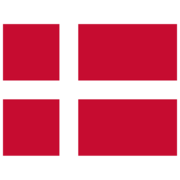Fiscal subject related
Denmark has been a leader in electronic invoicing since 2005, when it made digital invoices mandatory for public sector suppliers. These invoices are sent through the national platform NemHandel, which ensures secure and standardized data exchange. With the new Danish Bookkeeping Act, the country is now extending e-invoicing requirements to private businesses, aiming to modernize financial processes and improve transparency.
The Danish government wants to simplify bookkeeping, reduce paper use, and support secure digital transactions. E-invoicing helps businesses avoid manual errors, speeds up payments, and strengthens fraud prevention. It also supports Denmark’s goal of aligning with EU-wide digital trade practices.
Developments in Danish e-Invoicing Law:
- Since 2005, e-invoicing is mandatory for all public sector transactions,
- From July 2024, medium and large businesses using standard accounting software must switch to certified bookkeeping systems,
- From January 2025, this also applies to companies using custom-developed software,
- From January 2026, the rules will include financial institutions and individually managed businesses with more than 300,000 DKK in annual revenue,
- Invoice formats include OIOUBL (UBL 2.0) and Peppol BIS 3.0,
- Invoices must be archived for at least five years,
- Electronic signatures are not mandatory.
Smaller businesses are not required to adopt certified e-invoicing yet but must still comply with other bookkeeping and archiving rules.
The NemHandel platform remains the central tool for exchanging e-invoices with Danish public institutions. Businesses must connect through certified access points to ensure their invoices meet security and data standards.
Denmark also promotes the Peppol network, which allows cross-border invoice exchange and supports international trade. Peppol uses the same data formats as NemHandel and is overseen nationally by the Danish Business Authority.
In summary, Denmark’s shift to mandatory e-invoicing is part of a broader move to digital bookkeeping. While public sector e-invoicing has been standard for years, private businesses are now being brought into the same framework to ensure consistency, reduce fraud, and improve efficiency.
Other news from Denmark
Denmark Launches SAF-T 2.0
 Denmark
Author: Ivana Picajkić
Denmark
Author: Ivana Picajkić
Denmark has introduced SAF-T 2.0, an updated Standard Audit File for Tax that standardizes transaction-level accounting data and improves transparency, interoperability, and automated data exchange between businesses, auditors, and public authorities. From 1 January 2027, registered digital accounting systems must support SAF-T 2.0, supporting future automated reporting and data-driven compliance... Read more



Denmark: Government to Study Possible VAT Cut on Food from 2028
 Denmark
Author: Ivana Picajkić
Denmark
Author: Ivana Picajkić
Denmark has reached a political agreement to analyse VAT-based measures to reduce food prices from 2028, including either lowering VAT on all food or removing VAT on fruit and vegetables, with DKK 6 billion per year earmarked for one option. No changes apply yet, as the government will complete its analysis and consultations by the second half of 2026 before deciding whether—and how—to implement a... Read more



Denmark Considers Cutting VAT on Food but Faces Structural Challenges
 Denmark
Author: Ivana Picajkić
Denmark
Author: Ivana Picajkić
Denmark plans to reduce VAT on basic foodstuffs from 2028 and is currently debating whether the cut should apply to all food or be limited to fruit and vegetables, marking a major departure from its long-standing single 25% VAT rate model. While both options are permitted under EU VAT rules, each would increase compliance complexity, and the government has indicated that any change will require a... Read more



Denmark: OIOUBL 2.1 – Schematron version 1.17.0. 1.17.0. RC
 Denmark
Author: Ivana Picajkić
Denmark
Author: Ivana Picajkić
Denmark has released OIOUBL 2.1 Schematron v1.17.0 (Release Candidate), introducing stricter tax code consistency checks, enhanced Peppol VAT code alignment, and mandatory currency validation on amount fields. The final version is expected in mid-February 2026, with mandatory implementation by 15 May 2026, giving businesses additional time to test and adapt their invoicing systems. The Danish Busi... Read more



Denmark: Digital accounting obligations from 2026
 Denmark
Author: Ivana Picajkić
Denmark
Author: Ivana Picajkić
From 1 January 2026, Denmark’s Bookkeeping Act will require VAT-registered businesses with turnover above DKK 300,000—including foreign VAT-registered entities—to use compliant digital accounting systems instead of paper-based records. These systems must support structured e-invoicing (OIOUBL/Peppol BIS), digital archiving, and SAF-T generation, with non-compliance subject to supervision by the Da... Read more



Denmark Moves Forward With Digital Bookkeeping as OIOUBL 3.0 is Cancelled
 Denmark
Author: Ivana Picajkić
Denmark
Author: Ivana Picajkić
In 2026, Denmark completes the final rollout of its Digital Bookkeeping Act, extending mandatory electronic accounting and invoicing to around 118,000 additional businesses from 1 January 2026, with in-house systems granted a transition period until 1 July 2026. At the same time, the planned OIOUBL 3.0 e-invoice format has been formally cancelled, creating short-term technical uncertainty as autho... Read more



New document was uploaded: EV-chargers from the Fiscalization Perspective in Denmark
 Denmark
Author: Ivana Picajkić
Denmark
Author: Ivana Picajkić
The purpose of this document is to explain rules regarding the treatment of EV chargers for electric vehicles in Denmark in relation to fiscalization. The document will explain whether they are subjects of fiscalization or not, whether there are some special rules and regulations, or if there are some special rules. Read more
Subscribe to get access to the latest news, documents, webinars and educations.
Already subscriber? Login

